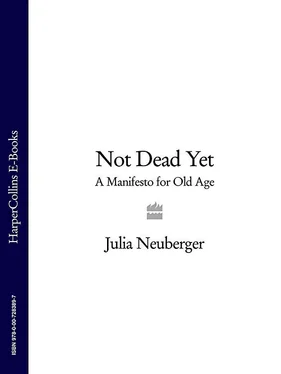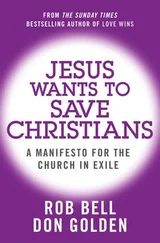2 Don’t waste my skills and experience: the right to work
Then there are those issues about getting out into the world and playing an active role, which appears to be a basic human need at any age – and starting with the vexed question of appearances. Older people, and especially women, are always complaining about shops having no proper clothes for them, about how they hate communal changing areas – and swimming with younger, fitter people – and how they are always scared of being regarded as mutton dressed as lamb.
Any manifesto must insist on decent and accurate mirrors in shops, sales staff who are old enough to understand, single changing rooms, an alteration hand, and a decent range of clothes for the over-sixties. In exchange, older women would buy better clothes, check carefully that they were always well groomed – and therefore not ‘invisible’ as so many often complain – and keep up to date with emerging trends, as interpreted for older people.
The role models would be Joan Bakewell and Judi Dench and many, many more. But the fact that women are older – and men for that matter – does not mean they are not interested in their appearance, or that attractiveness and sexual attraction have disappeared. And headlines that suggest there was a plot to oust Menzies Campbell as Liberal Democrat leader for ‘looking too old’ are precisely those that depress, and anger, older people (he was a youthful 65 when that headline was published). It was particularly galling that the source who said this to the Evening Standard was quoted as adding: ‘It’s not that he is too old, it’s just he looks too old …’
That relates to getting out to work, but how many older people are going to continue to work into very old age? Should they have to? Is it only because pension provision and savings are so poor in the UK, or is there a better, or different, reason for older people working, to do with work giving meaning to life? And will that be full or part time? And will it be at the same status as previous jobs and careers, or at a lower status, however grand the title, as they often manage in the United States?
People want to be visible. Some older people want to work, some will need to because of the money, and many will need to be volunteers. What is essential is that older people are visible and welcome and being active. But that means adapting the rigid rules that now govern when they are allowed to do so, and bear little or no relationship to their actual abilities.
3 Don’t take my pride away: end begging for entitlements
Then there is the question of money. The finer points of pensions are too abstruse and obscure for this kind of book, but what might older people expect as a basic minimum income, what might they be expected to pay for care out of that, and what things should be provided free or cheaper because people are older? Also, what is a reasonable proportion of wealth that should be left to our children?
Old age is not what it used to be. More of us will get there, and it is likely to last longer for most people than it used to. Better health and lower death rates mean that each successive generation is more likely to reach 65. Men now in their forties are nearly 90 per cent likely to collect their state pension, and the likelihood for women is over 90 per cent.
The concept of a long retirement is fairly new. The original state pension was set with a starting age where people were expected to live a few months or years, rather than several decades. This scenario of being retired for decades has many implications for financing old age, and that is where the political debate has tended to be. But it has equally important implications for people making choices about how they want to live, as well as around the support they may require. All over Europe, parents also want to pass their wealth onto their children and the children expect to inherit homes.
There are huge disparities and inequalities in income and wealth for older people. Some of this is sudden, brought about by old age and inadequate pension provision. In other circumstances, we see poor older people who have been poor all their lives, and then the question is whether we should try to redistribute older people’s income to alleviate the worst of the misery in older old age.
Meanwhile, governments around the world, and particularly in Europe, are concerned at the effect the pensions ‘time bomb’ will have upon the wider society, and are using rhetoric that seems to blame older people for staying alive. Older people are becoming angrier about broken promises around financial and other support in old age, although arguably not angry enough, and younger people are beginning to fear what has hitherto always seemed to them to be impossibly far in the future.
4 Don’t trap me at home because there are no loos or seats: reclaim the streets
Then there is the question of access to life, like the problem of transport and getting from place to place. Older people fill our buses and use their Freedom Passes with pleasure and abandon. What would an ideal transport system look like for older people when in rural areas many find it difficult to go anywhere if they do not drive, and in cities and towns there are still shortages of accessible transport, despite disability legislation? What would ideal transport look like? Would it be taxis, private car pooling, rental of wheelchairs in busy places, better access to buses, better and safer places to wait and sit at stations and bus stops?
Younger campaigners might find it awkward to talk about, but there is no doubt that the issue of public loos – as well as park benches, park attendants and seats in shops – are absolutely central to the way older people are being excluded from our town centres. Certainly, older people need to feel safe, given that many public spaces in cities feel as if they have been given over or abandoned to the young and disaffected. But unless there are adequate loos there as well, many older people feel they dare not leave their homes and go shopping. But because there seems an element of bathos about even mentioning it, nothing is done.
5 Don’t make me brain dead, let me grow: open access to learning
What would it look like if education and educational activities were geared more to older people? Not only degrees, or the University of the Third Age, but specialist courses such as stone carving, pottery, art programmes and other things which could continue into very old – and possibly very frail – old age. Will university charges for degrees be reduced or waived for the very old, and should they be? Can older people get scholarships?
How can education work when some older people have problems with vision or hearing, and how well-adapted do universities and colleges, and general classes, have to be to help people hear and see all that is going on?
A fully inclusive educational programme might be geared less to future employment and more to the idea of education as fulfilment, as a goal in itself, to enrich one’s life. So the instrumental view of education policy in many education authorities will need to be seen through a different, holistic lens that implies that education could and should be for its own sake.
6 Don’t force me into a care home: real choice in housing
There is the basic question of accommodation, including people’s own homes, sheltered housing, or – if things get rough – nursing homes and care homes, much feared by many older people and often rightly so. Nobody wants to give up their home and go into a ‘home’. Yet questions about why we are still so bad at providing care at home, particularly – and maybe understandably – for older people with Alzheimer’s disease, still need answering.
Читать дальше












